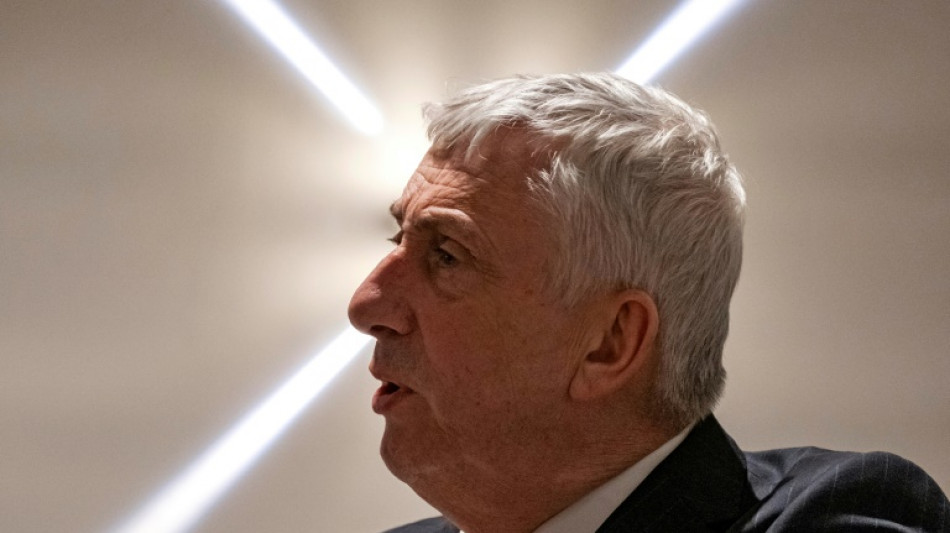

UK speaker urges 'respect' amid 'dangerous' Ukraine tensions
Long experienced in calming rowdy parliamentary debates, Britain's speaker Lindsay Hoyle has stressed the need for "respect" during confrontation and urged rivals "turn the heat down" amid soaring tensions in Ukraine.
"The last thing we need is another war, and I have got to say, our people who serve in the British armed forces, the last thing they need is being sent to war again," said Hoyle, who on Wednesday visited UK military bases on the Mediterranean island of Cyprus.
Russia's huge build-up of troops, missiles and warships around Ukraine is being billed as Europe's worst security crisis since the Cold War.
"I recognise that NATO is watching this very closely... Hopefully, behind the scenes, the talks continue. Let's turn the heat down, let's encourage peace from Russia; nobody wants to go to war with each other," said Hoyle, who wraps up a visit to Cyprus on Thursday.
"I don't like other countries being invaded, and that is something we have to remind Russia of. Ukraine has the right to its own democracy... I think it is a very dangerous time for the world, and everybody is really watching this. Games are being played, but these are very, very serious games."
Hoyle's comments come against a backdrop of efforts to make debate "more respectful and tolerant", and amid pressure on Prime Minister Boris Johnson to apologise for what some critics have called a misleading "Trumpian" attack.
Johnson -- already facing calls to step down after months of scandals -- had accused opposition leader Keir Starmer of failing in 2013 as head of the country's prosecution service to take action against notorious celebrity paedophile Jimmy Savile.
- 'Consequences of the language' -
Earlier this month, Hoyle told Johnson the claims could "inflame" opinions.
"Inappropriate language -- I've been very clear about that; I just gently said; it might be orderly in the house, but think about the consequences of the language that you use," he said.
"And that is about making sure... we have that respect as we have that disagreement. It would be a damn boring parliament if we all agreed with each other. It is just using the right language: moderate language, tempered language, respect."
Hoyle declined to comment on ongoing investigations by London's Metropolitan Police into claims of Covid lockdown-breaking parties in Johnson's Downing Street office.
"I have to stand back, have to wait for that report," Hoyle said. "What I can say is that if you inadvertently mislead parliament, you have to correct it."
The "partygate" scandal has placed Johnson in political jeopardy with several MPs from his Conservative party publicly calling for his resignation, although he denies any wrongdoing.
Johnson has already apologised in parliament for a series of gatherings identified in an official inquiry.
But Hoyle also defended parliamentary rules barring lawmakers from directly calling each other a liar.
"If someone says, 'you are a liar', why do I stop that? Because it brings the level of debate to a much lower level," Hoyle said.
"To call someone a liar... that's not modernisation, that's going backwards, not forwards."
Hoyle, a former Labour MP, was elected as speaker of the lower House of Commons in 2019 -- a non-partisan administrator of parliamentary business -- after previously serving as deputy to his colourful predecessor John Bercow.
"I am the 158th Speaker of the House of Commons, and for 750 years, thereabouts, every one of us have had a different style, and a different way of doing things," Hoyle said.
"If I go to watch a rugby league match, or a football match, I don't want to come away talking about the referee; I want to talk about the game."
H.Davenport--NG



